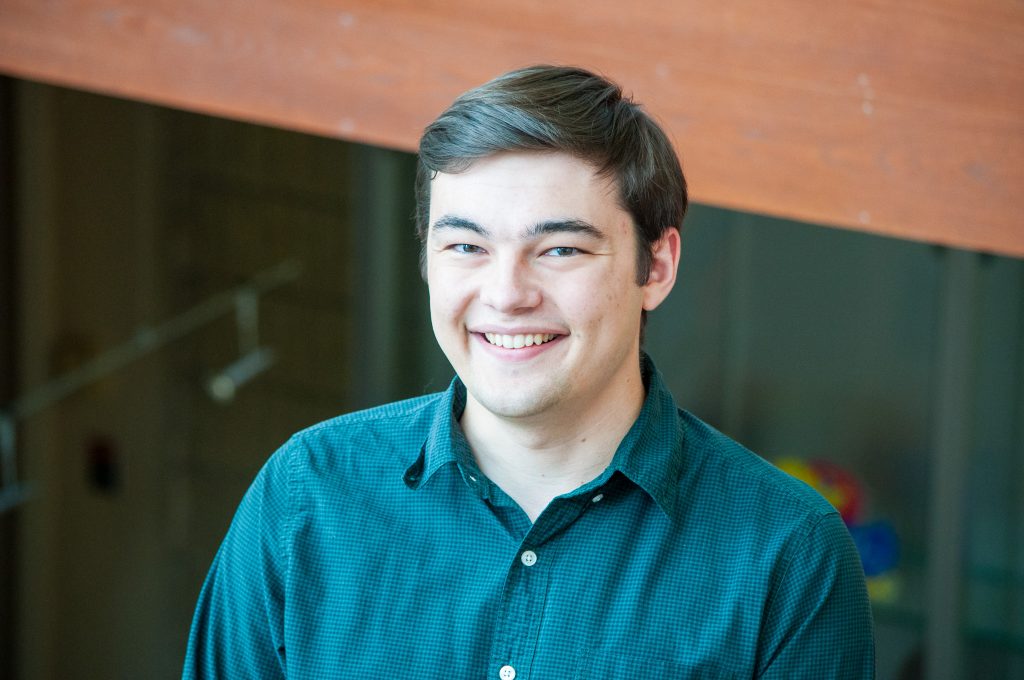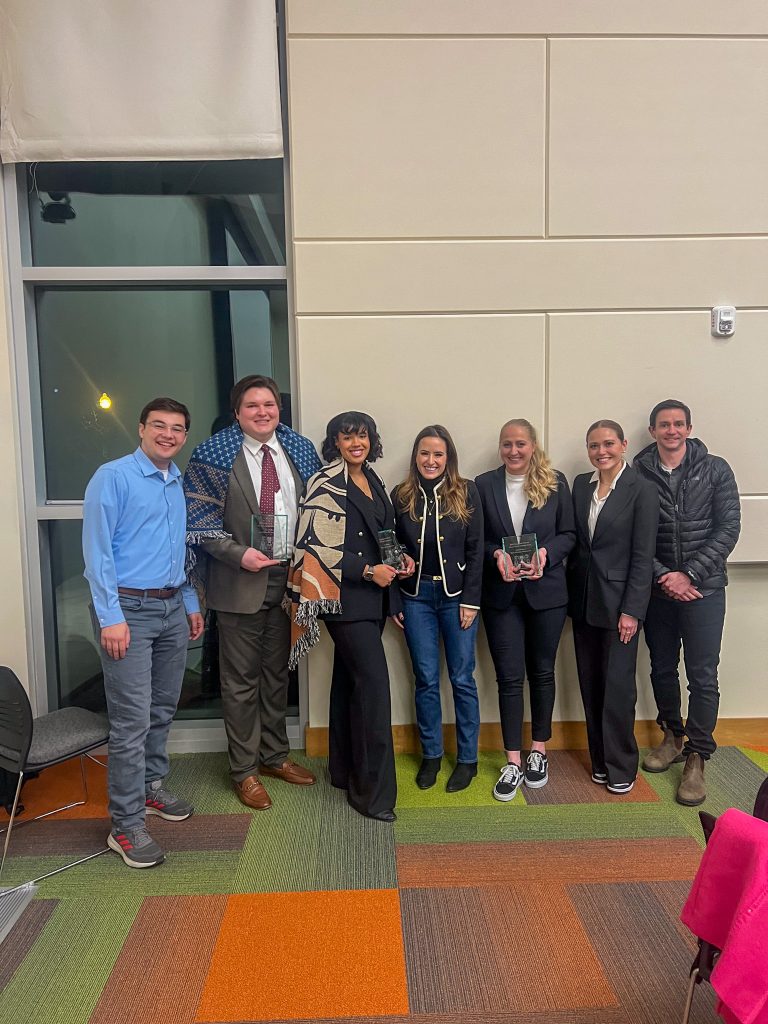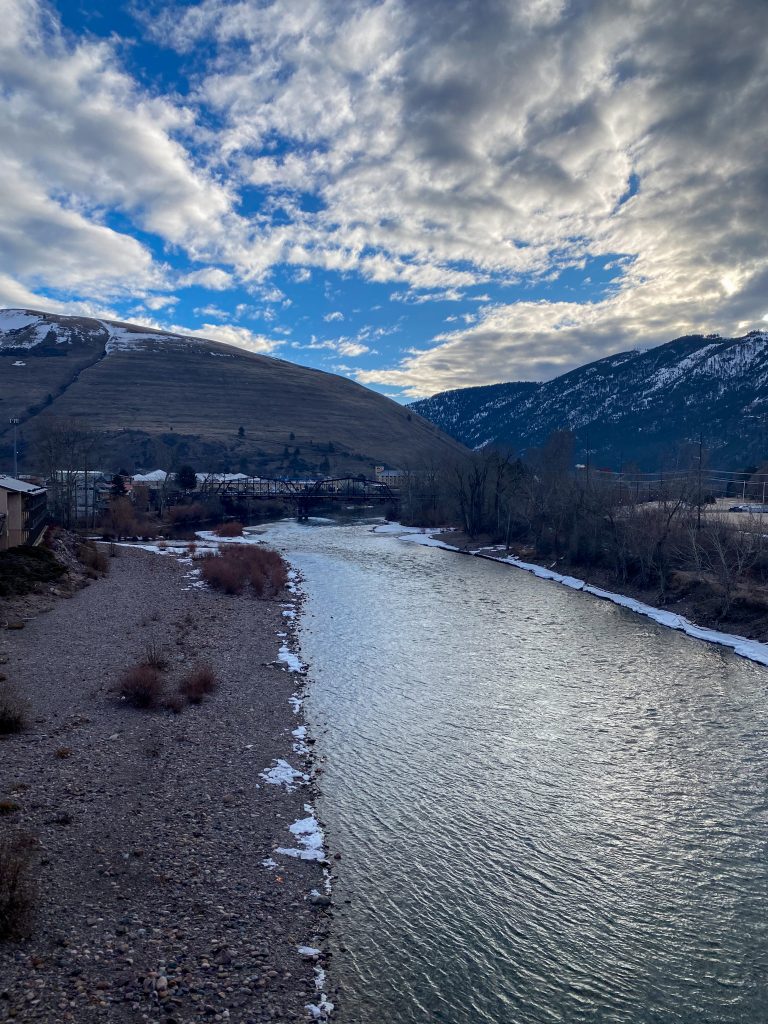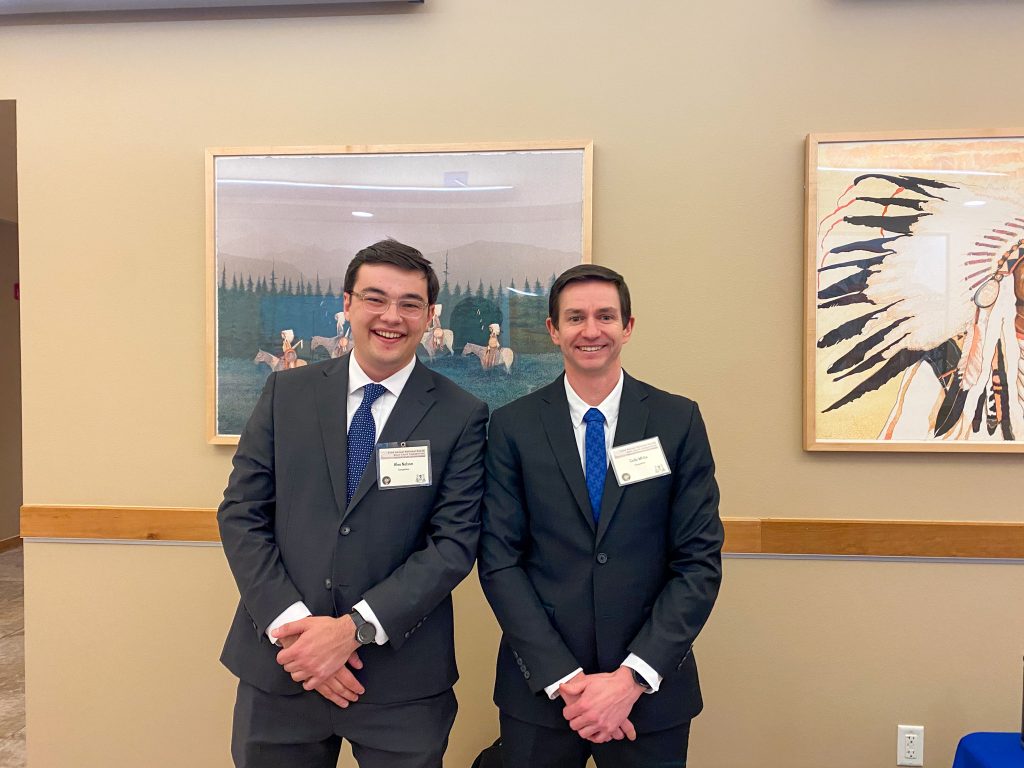Legal Advocacy and Growth in Law School

Law school is such a short time of your life – three brief years. For those of us in law school, those three years seem like a long time. But to help get context on how fast time moves, and how transitory we all are in life, sometimes it can be helpful to take a long-term view of things. For instance, three years is nothing when compared to the time of an entire generation. Sometimes it can be very helpful to think of things in terms of generations, rather than years.

I had an opportunity to really think about things in terms of generations during the weekend of February 23, where I was fortunate enough to travel to Missoula, Montana, as a part of KU’s Native American Law Students Association (NALSA) moot court team. Moot court is a speaking competition modeled after oral arguments in front of the Supreme Court. You and a partner write a persuasive brief arguing why the judges should side with your (fictitious) client in a dispute. Then you travel to a tournament and appear before a panel of judges, arguing why the law supports your client’s position. The NALSA moot court problem focuses on issues in tribal law and federal law affecting native peoples. This year’s problem was focused on issues of water rights and tribal sovereignty, based on a real dispute between the Confederated Salish and Kootenai Indian Tribes and Montana farmers.
The tournament began with an opening ceremony, where the chairman for the Confederated Salish and Kootenai Tribes shared a story that stayed with me for the entire weekend. The story involved a conversation between a tribal leader and a farmer, where the leader met to talk about disputed water rights, and who would likely prevail in court on a water rights claim. Those who use a water source first often get the primary rights to use that water, and consequently, the question of which generation was the first to use a water source can often be of central importance. In the story, the farmer says to the tribal leader, “I think we will win this dispute. We have all the history here – my family has been farming here for four generations!” The tribal leader nods, and then says “You’re right, four generations is a lot. My family and my people have lived here for seven hundred generations.” Seven hundred generations – that is a long time. And the Confederated Salish and Kootenai Tribes are still there, seven hundred generations and counting.
Learning about the idea of the long view, of seven hundred generations, was one of several incredible things about being a part of the NALSA moot court team. I loved traveling to Missoula – the mountains were beautiful, and I never got used to waking up and walking out of my hotel room to a view of what looked like the Misty Mountains from Tolkien’s Middle Earth. I loved hanging out with my teammates. I got to know them all in a different way than I would normally have done at school (there is something about being with other people in an airport at an ungodly early hour of the morning that just bonds you together). Being enmeshed in tribal law and learning from some of the foremost tribal law scholars in the nation was also amazing. I did not know very much about tribal law before being a part of NALSA, and it was an incredible experience to learn about it in a very real, tangible, and hands-on way. Lastly, it was super cool to see my teammates do well. KU ended up winning the competition for the fourth year in a row! And we had another team rank in the top 8, with a second place brief (the written part of the competition)! The tournament was a success on all fronts.
But above the successes and experiences, the most critical thing I learned from the weekend was the importance of advocacy. Native peoples have inhabited their lands for seven hundred generations and longer, and yet continue to be ignored and harmed by the system. There is often a negative or pessimistic outlook for native peoples in the United States justice system. The feeling is that tribes rarely win legal rights or legal disputes. And yet, the NALSA moot court competition was a group of around a hundred students and many more legal professionals, all dedicated to advocating for tribal nations and making a positive impact with their advocacy. It struck me that if something seems like an uphill battle or a hard legal problem, a group of committed passionate advocates can make a world of difference. Whether your client is a tribal nation, a struggling single parent, a Fortune 500 company or anyone else – advocacy matters. NALSA moot court helped me understand that as law students and future attorneys, we need to advocate for our clients and causes we care about in the best manner we can so that in seven hundred generations from now, the world will be a better place.
– Alex Nelson is a 1L KU Law Student Ambassador from Stillwater, Minnesota

